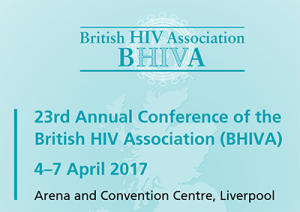Community presentations: dental care, HIV awareness and access to formula milk
24 April 2017. Related: Conference reports, Paediatric care, BHIVA 23rd Liverpool 2017.
Simon Collins, HIV i-Base
Although BHIVA conferences always include community-based research, usually covered by many posters, this year the Friday morning oral research presentation were all focused on living with HIV. [1]
HIV and dental services
Alasdair Hudson from the Family Planning Association presented an analysis on experience that HIV positive people have over dental care. The results were from more than 1,500 responses to the 2015 Stigma Survey, roughly matching the UK demographics in terms of gender, age, race and time since diagnosis.
This is a community-based project with surveys distributed by organisations and clinics across the UK and supported with analyses from Public Health England.
In the age of ART, the historical issues linked to dental care: stigma, denial of service, the need for HIV as a special needs service, should have largely been resolved, especially as the ban on HIV positive dentists was lifted years ago.
However, on the first question of awareness of HIV status, only 58% of respondents felt in control of HIV disclosure to dentists, only 35% disclosed and only 27% felt supported in the disclosure process.
Compared to GP services, people were more worried about dental care (40% vs 27%) with 14% of respondents reported avoiding seeking care at both services and 13-15% reported being treated differently at both services.
Worrying about receiving a different level of treatment, having received poorer treatment and refusal or delayed treatment were all significantly associated with avoiding dental care in the future (all p <0.001).
HIV awareness among the general public
Alex Sparrowhawk from the Terrence Higgins Trust presented results from an independent commissioned three-question survey about HIV awareness from 2000 members of the general public.
On HIV transmission, 30% of respondents (including 30% of gay and bisexual men) thought this could come from sharing a toothbrush, 20% from kissing (including 10% of gay and bisexual men) and around 5% from sharing other household items.
On the impact of ART, only 29% knew HIV positive people could have children without passing on HIV and only 59% that living to old age was possible. However, almost 40% knew that ART meant HIV positive people could have sex without the risk of HIV transmission. On these questions responses were broadly similar between the general population and gay/bisexual men.
Many transmission myths were still widespread in London, with little difference in results by geographical region. Awareness was slightly lowest in those either under 24 or older than 55.
Very few people (~3%) strongly agreed “there is currently an HIV epidemic in the UK”, with 53% of the general public and 68% of gay/bisexual men broadly disagreeing with this statement.
Affordability and access to formula milk
Bianca Karpf presented results on experiences of affording formula milk from a telephone survey of 42 HIV positive mothers (given birth within three years) who were service users at London-based Body and Soul.
Overall, 71% spent more than £10/week on formula milk with 7% spending more than £20. Over 50% admitted there were times when they or a family member went hungry in order to buy formula milk. Approximately half had no access to public funding.
Most women were strongly advised not to breastfeed, although one woman was given no advice. Most women were strongly committed to using formula milk even when breastfeeding was suggested as an option, as even with ART there is still a small risk of HIV transmission.
The presentation focused on lack of choice and support for many women and recommended that prescription of free formula milk should be provided to all HIV positive mothers, with most women (75%) preferring the option of vouchers that could be used in supermarkets.
For further information, National AIDS Trust have produced an excellent policy briefing on the issues about access to formula milk for HIV positive mothers in the UK. [5]
References:
Unless stated otherwise, all references are to the programme and abstracts of the 23rd BHIVA conference, 4-7 April 2017, Liverpool.
- Oral Research Presentations: Session 4: Living with HIV. 23rd BHIVA 4-7 April 2017, Liverpool. Friday 7 April 2017, 11-12am.
- Hudson A et al. Experiences of HIV disclosure and stigma in the dental setting: findings from the people living with HIV Stigma Survey 2015. 23rd BHIVA 4-7 April 2017, Liverpool. Oral abstract O25.
http://www.bhiva.org/documents/Conferences/2017Liverpool/Presentations/170407/AlastairHudson.pdf (PDF)
http://www.bhiva.org/170407AlastairHudson.aspx (webcast) - Sparrowhawk A et al. Perceptions of HIV within the general public. 23rd BHIVA 4-7 April 2017, Liverpool. Oral abstract O26.
http://www.bhiva.org/documents/Conferences/2017Liverpool/Presentations/170407/AlexSparrowhawk.pdf (PDF)
http://www.bhiva.org/170407AlexSparrowhawk.aspx (webcast) - Karpf B et al. Affording formula: HIV – positive women’s experiences of the financial strain of infant formula feeding in the UK. 23rd BHIVA 4-7 April 2017, Liverpool. Oral abstract O27.
http://www.bhiva.org/documents/Conferences/2017Liverpool/Presentations/170407/BiancaKarpf.pdf (PDF)
http://www.bhiva.org/170407BiancaKarpf.aspx (webcast) - NAT. Policy Briefing: Access to formula milk for mothers living with HIV in the UK. (April 2017).
http://www.nat.org.uk/publication/policy-briefing-access-formula-milk-mothers-living-hiv-uk


